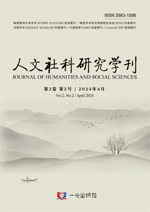《源氏物语》是日本史上著名文学作品,被誉为“日本文学的高峰”,学界普遍认同为世界第一部长篇小说。但同时由于作者紫式部在汉文化上的造诣很深,中国元素的影子在作品当中也随处可见。这本书很像我国唐朝的传奇、变文,但文章端正典雅,散文的韵味十足。再加上引用了大量的汉代诗歌和中国古典书籍的史实,并且作者将其巧妙地隐藏在动人的故事情节之中,使得这本书中国古典文学的气息浓厚。本文旨在分析《源氏物语》折射出的中国元素,以及其精神内涵与中国文化精神内涵的比较。并以《源氏物语》作为日本文化所折射出的文学代表,探讨中国文化与日本文化之间的差异和中日两国文化交流的突出表现。加深了我们对中日文化交流的认识,通过相互借鉴、取长 补短,加之自身的创新,共同促进文化发展和文学创作。
“Genji Monogatari” is a famous literary work in Japanese history. It is known as the “peak of Japanese literature” and is generally recognized by academic circles as the world's first full-length novel. But at the same time, because the author Murasaki Shikibu has a profound knowledge of Chinese culture, the shadow of Chinese elements can be seen everywhere in the work. This book is very similar to the legends and Bianwen of the Tang Dynasty in my country, but the article is correct and elegant, and the prose is full of charm. In addition, he quotes a large number of historical facts from Han Dynasty poetry and Chinese classical books, and the author cleverly hides them in moving storylines, giving this book a strong flavor of Chinese classical literature. This article aims to analyze the Chinese elements reflected in “Genji Monogatari” and compare its spiritual connotation with the spiritual connotation of Chinese culture. Using “Genji Monogatari” as a literary representative reflected in Japanese culture, it explores the differences between Chinese culture and Japanese culture and the outstanding manifestations of cultural exchanges between China and Japan. It has deepened our understanding of cultural exchanges between China and Japan, and jointly promoted cultural development and literary creation through mutual learning, learning from each other's strengths, and our own innovation.
Ⅰ.引言
Ⅱ.中日文化交流下《源氏物语》的背景介绍
Ⅲ.中国文化对日本文学作品《源氏物语》的影响
Ⅳ.《源氏物语》与《长恨歌》的文化意蕴共鸣
Ⅴ.结语
